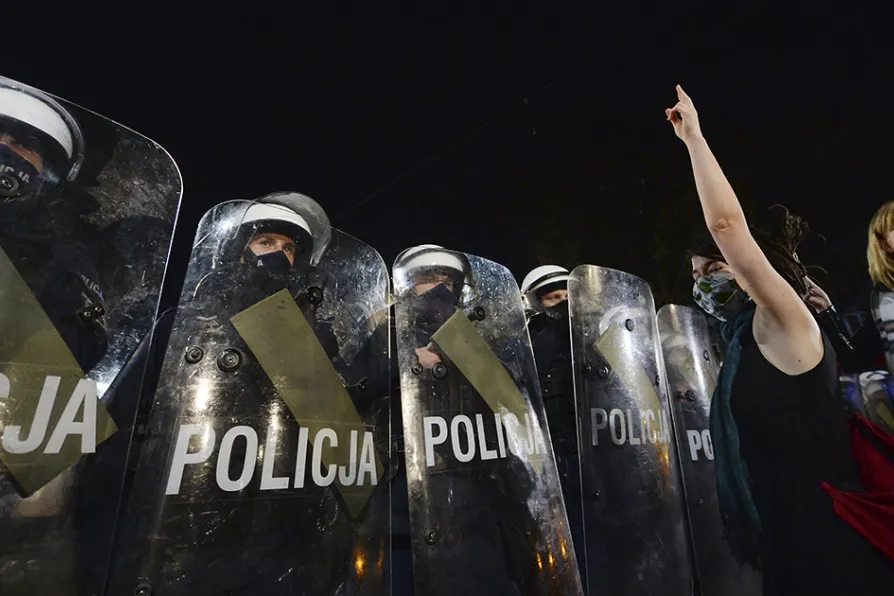
 A police cordon guards the house of Poland's ruling conservative party leader Jaroslaw Kaczynski against a crowd protesting a decision by the Constitutional Court, in Warsaw, Poland
A police cordon guards the house of Poland's ruling conservative party leader Jaroslaw Kaczynski against a crowd protesting a decision by the Constitutional Court, in Warsaw, Poland
“YOU have blood on your gowns,” women protesting across Poland told the country’s top judges last night following their decision to ban almost all abortions.
Poland’s constitutional court ruled that abortions in the case of foetal defects are unconstitutional yesterday, with Chief Justice Julia Przylebska saying that they were “incompatible” with the constitution.
She was among far-right and Catholic politicians who argued that the termination of a pregnancy where the foetus has congenital abnormalities denies the protection of the life of every individual.

Police guidelines suggesting home searches and digital checks for women who experience pregnancy loss under suspicion of having broken the outdated 1967 Abortion Act have sparked uproar, writes PEOPLES’ HEALTH DISPATCH













